Today (March 18th) is Goddess of Fertility Day, a time when Aphrodite and other gods and goddesses of fertility are honored by pagans throughout the world in celebration of life and fertility.
———————————————————————————————————————————–
Understanding the complex and multifaceted issue of human reproduction has been, and remains, of great interest both to academics and practitioners. Fertility, Reproduction and Sexuality series includes studies by specialists in the field of social, cultural, medical, and biological anthropology, medical demography, psychology, and development studies. Current debates and issues of global relevance on the changing dynamics of fertility, human reproduction and sexuality are addressed. Below is a selection of forthcoming & newly published titles within the series:
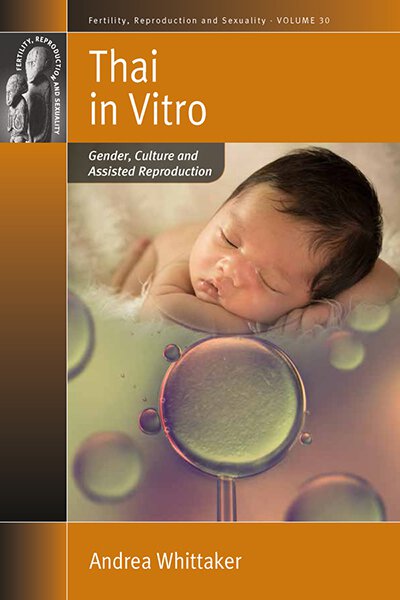 Volume 30 Forthcoming!
Volume 30 Forthcoming!
THAI IN VITRO
Gender, Culture and Assisted Reproduction
Andrea Whittaker
In Thailand, infertility remains a source of stigma for those couples that combine a range of religious, traditional and high-tech interventions in their quest for a child. This book explores this experience of infertility and the pursuit and use of assisted reproductive technologies by Thai couples. Though using assisted reproductive technologies is becoming more acceptable in Thai society, access to and choices about such technologies are mediated by differences in class position. These stories of women and men in private and public infertility clinics reveal how local social and moral sensitivities influence the practices and meanings of treatment.
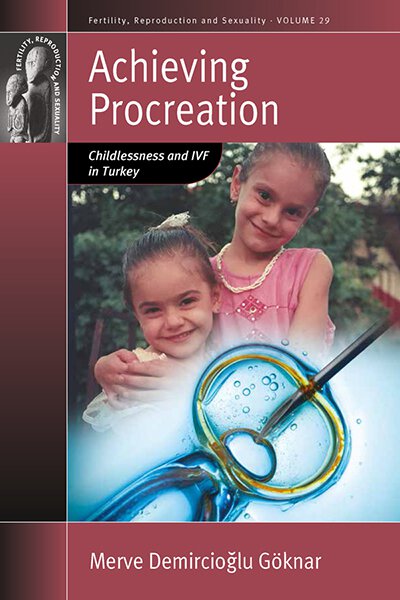 Volume 29 Forthcoming!
Volume 29 Forthcoming!
ACHIEVING PROCREATION
Childlessness and IVF in Turkey
Merve Demircioğlu Göknar
Managing social relationships for childless couples in pro-natalist societies can be a difficult art to master, and may even become an issue of belonging for both men and women. With ethnographic research gathered from two IVF clinics and in two villages in northwestern Turkey, this book explores infertility and assisted reproductive technologies within a secular Muslim population. The author investigates the experience of infertility through various perspectives, such as the importance of having a child for women, the mediating role of religion, the power dynamics in same-gender relationships, and the impact of manhood ideologies on the decision for — or against — having an IVF.
 Volume 28
Volume 28
COUSIN MARRIAGES
Between Tradition, Genetic Risk and Cultural Change
Edited by Alison Shaw and Aviad Raz
Juxtaposing contributions from geneticists and anthropologists, this volume provides a contemporary overview of cousin marriage and what is happening at the interface of public policy, the management of genetic risk and changing cultural practices in the Middle East and in multi-ethnic Europe. It offers a cross-cultural exploration of practices of cousin marriage in the light of new genetic understanding of consanguineous marriage and its possible health risks. Overall, the volume presents a reflective, interdisciplinary analysis of the social and ethical issues raised by both the discourse of risk in cousin marriage, as well as existing and potential interventions to promote “healthy consanguinity” via new genetic technologies.
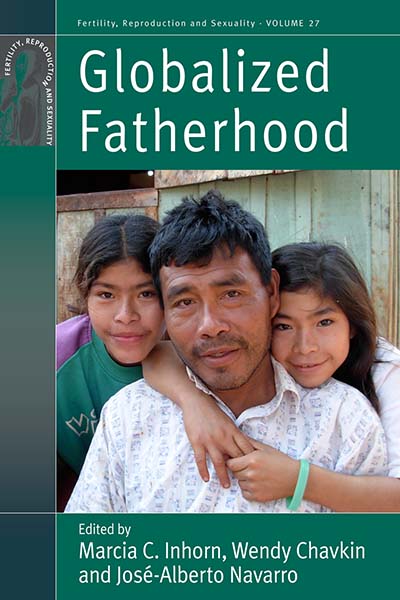 Volume 27
Volume 27
GLOBALIZED FATHERHOOD
Edited by Marcia C. Inhorn, Wendy Chavkin & José-Alberto Navarro
Using an entirely new conceptual vocabulary through which to understand men’s experiences and expectations at the dawn of the twenty-first century, this path-breaking volume focuses on fatherhood around the globe, including transformations in fathering, fatherhood, and family life. It includes new work by anthropologists, sociologists, and cultural geographers, working in settings from Peru to India to Vietnam. Each chapter suggests that men are responding to globalization as fathers in creative and unprecedented ways, not only in the West, but also in numerous global locations.
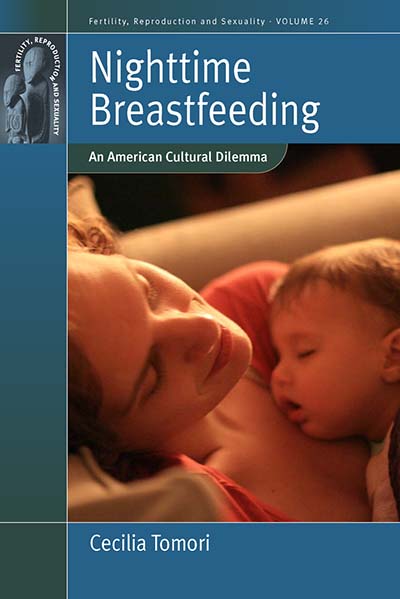 Volume 26
Volume 26
NIGHTTIME BREASTFEEDING
An American Cultural Dilemma
Cecília Tomori
Nighttime for many new parents in the United States is fraught with the intense challenges of learning to breastfeed and helping their babies sleep so they can get rest themselves. Through careful ethnographic study of the dilemmas raised by nighttime breastfeeding, and their examination in the context of anthropological, historical, and feminist studies, this volume unravels the cultural tensions that underlie these difficulties. As parents negotiate these dilemmas, they not only confront conflicting medical guidelines about breastfeeding and solitary infant sleep, but also larger questions about cultural and moral expectations for children and parents, and their relationship with one another.
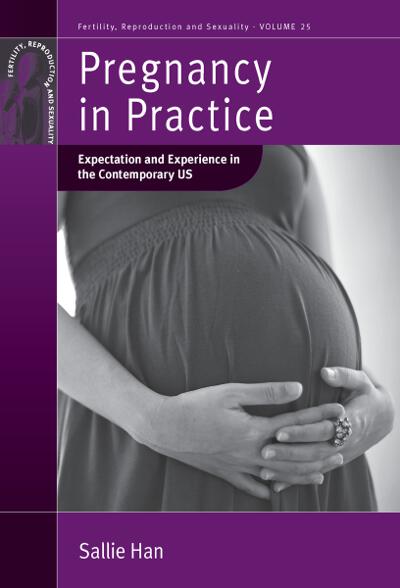 Volume 25 Forthcoming in Paperback!
Volume 25 Forthcoming in Paperback!
PREGNANCY IN PRACTICE
Expectation and Experience in the Contemporary US
Sallie Han
Babies are not simply born—they are made through cultural and social practices. Based on rich empirical work, this book examines the everyday experiences that mark pregnancy in the US today, such as reading pregnancy advice books, showing ultrasound “baby pictures” to friends and co-workers, and decorating the nursery in anticipation of the new arrival. These ordinary practices of pregnancy, the author argues, are significant and revealing creative activities that produce babies. They are the activities through which babies are made important and meaningful in the lives of the women and men awaiting the child’s birth. This book brings into focus a topic that has been overlooked in the scholarship on reproduction and will be of interest to professionals and expectant parents alike.
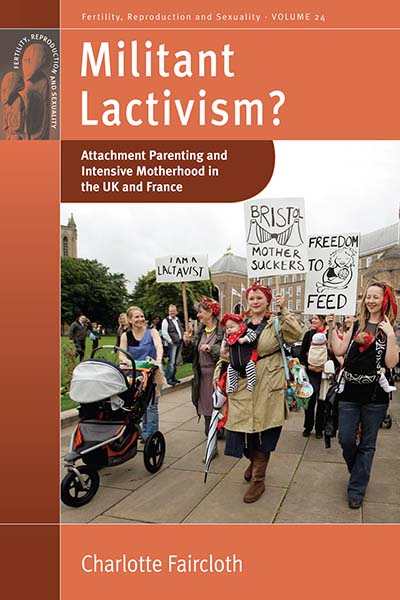 Volume 24
Volume 24
MILITANT LACTIVISM?
Attachment Parenting and Intensive Motherhood in the UK and France
Charlotte Faircloth
Following networks of mothers in London and Paris, the author profiles the narratives of women who breastfeed their children to full term, typically a period of several years, as part of an ‘attachment parenting’ philosophy. These mothers talk about their decision to continue breastfeeding as ‘the natural thing to do’: ‘evolutionarily appropriate’, ‘scientifically best’ and ‘what feels right in their hearts’. Through a theoretical focus on knowledge claims and accountability, the author frames these accounts within a wider context of ‘intensive parenting’, arguing that parenting practices – infant feeding in particular – have become a highly moralized affair for mothers, practices which they feel are a critical aspect of their ‘identity work’. The book investigates why, how and with what implications some of these mothers describe themselves as ‘militant lactivists’ and reflects on wider parenting culture in the UK and France. Discussing gender, feminism and activism, this study contributes to kinship and family studies by exploring how relatedness is enacted in conjunction to constructions of the self.
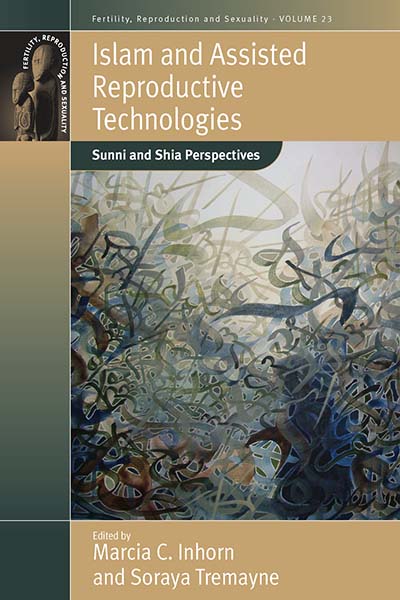 Volume 23
Volume 23
ISLAM AND ASSISTED REPRODUCTIVE TECHNOLOGIES
Sunni and Shia Perspectives
Edited by Marcia C. Inhorn and Soraya Tremayne
How and to what extent have Islamic legal scholars and Middle Eastern lawmakers, as well as Middle Eastern Muslim physicians and patients, grappled with the complex bioethical, legal, and social issues that are raised in the process of attempting to conceive life in the face of infertility? This path-breaking volume explores the influence of Islamic attitudes on Assisted Reproductive Technologies (ARTs) and reveals the variations in both the Islamic jurisprudence and the cultural responses to ARTs.
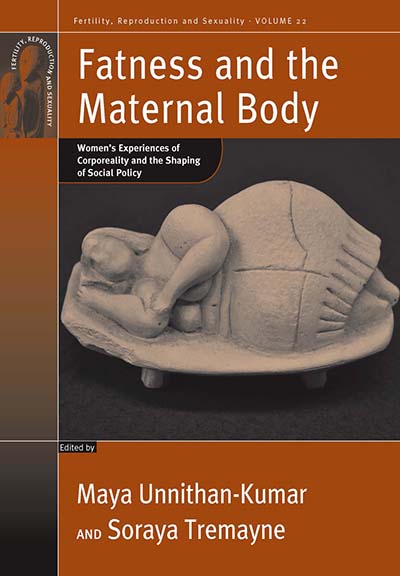 Volume 22
Volume 22
FATNESS AND THE MATERNAL BODY
Women’s Experiences of Corporeality and the Shaping of Social Policy
Edited by Maya Unnithan-Kumar and Soraya Tremayne
Obesity is a rising global health problem. On the one hand a clearly defined medical condition, it is at the same time a corporeal state embedded in the social and cultural perception of fatness, body shape and size. Focusing specifically on the maternal body, contributors to the volume examine how the language and notions of obesity connect with, or stand apart from, wider societal values and moralities to do with the body, fatness, reproduction and what is considered ‘natural’. A focus on fatness in the context of human reproduction and motherhood offers instructive insights into the global circulation and authority of biomedical facts on fatness (as ‘risky’ anti-fit, for example). As with other social and cultural studies critical of health policy discourse, this volume challenges the spontaneous connection being made in scientific and popular understanding between fatness and ill health.
 Volume 21
Volume 21
UNSAFE MOTHERHOOD
Mayan Maternal Mortality and Subjectivity in Post-War Guatemala
Nicole S. Berry
Since 1987, when the global community first recognized the high frequency of women in developing countries dying from pregnancy-related causes, little progress has been made to combat this problem. This study follows the global policies that have been implemented in Sololá, Guatemala in order to decrease high rates of maternal mortality among indigenous Mayan women. The author examines the diverse meanings and understandings of motherhood, pregnancy, birth and birth-related death among the biomedical personnel, village women, their families, and midwives. These incongruous perspectives, in conjunction with the implementation of such policies, threaten to disenfranchise clients from their own cultural understandings of self. The author investigates how these policies need to meld with the everyday lives of these women, and how the failure to do so will lead to a failure to decrease maternal deaths globally.
Please visit our webpage to browse a full selection of titles in the series.
—————————————–
 Anthropology in Action
Anthropology in Action
Journal for Applied Anthropology in Policy and Practice
Published in association with the Association of Social Anthropologists’ (ASA) Apply Network
Anthropology in Action (AIA) is a peer-reviewed journal publishing articles, commentaries, research reports, and book reviews in applied anthropology. Contributions reflect the use of anthropological training in policy- or practice-oriented work and foster the broader application of these approaches to practical problems. The journal provides a forum for debate and analysis for anthropologists working both inside and outside academia and aims to promote communication amongst practitioners, academics and students of anthropology in order to advance the cross-fertilisation of expertise and ideas.
Recent themes and articles have included the anthropology of welfare, transferring anthropological skills to applied health research, design considerations in old-age living, museum-based anthropology education, cultural identities and British citizenship, feminism and anthropology, and international student and youth mobility.
